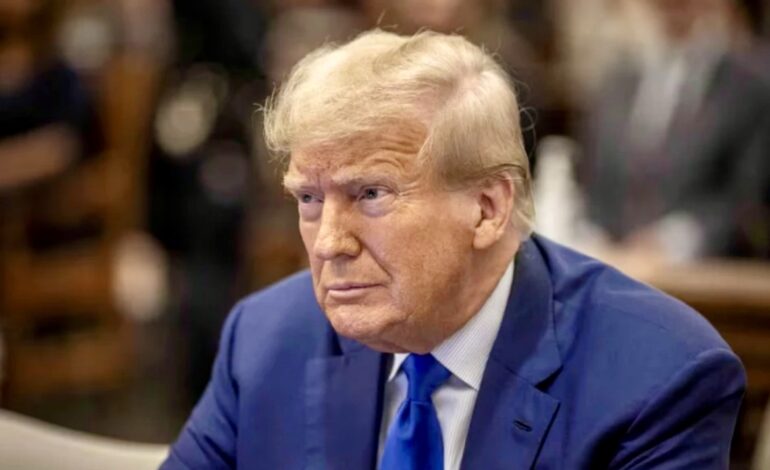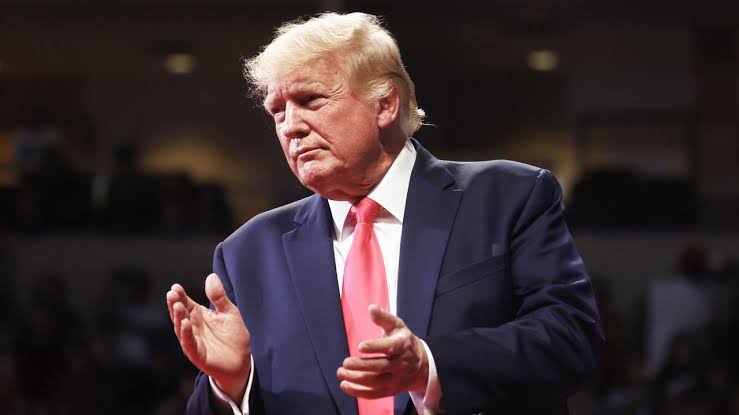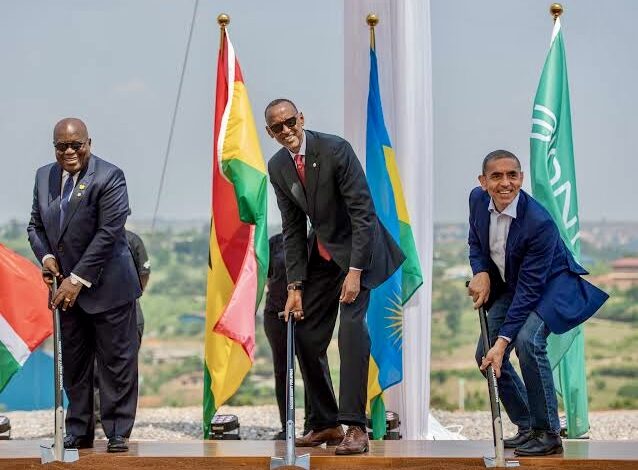
Faith Nyasuguta
Colorado’s Supreme Court has ruled that former President Donald Trump is ineligible to run for the White House in 2024 due to his involvement in the January 6, 2021, Capitol assault.
This landmark ruling is based on the application of Section 3 of the 14th Amendment, which prohibits individuals who have “engaged in insurrection” from holding public office. While this decision is specific to Colorado, it is the first instance in U.S. history where this constitutional provision has been utilized to disqualify a presidential candidate.
The four-to-three majority decision by the Colorado high court stated, “A majority of the court holds that President Trump is disqualified from holding the office of President under Section Three of the Fourteenth Amendment to the United States Constitution.”
The court emphasized that listing Trump as a candidate on the presidential primary ballot would be a wrongful act under the Election Code.
This ruling has immediate implications, and its significance extends beyond Colorado. It introduces a legal precedent that other states might consider, as courts in various parts of the country weigh similar actions against Trump. The decision is met with strong opposition from Republicans, with Trump’s campaign expressing intentions to appeal the ruling.
The legal landscape surrounding Trump is complex, with an array of court cases ranging from criminal charges related to efforts to overturn the 2020 election to allegations of mishandling classified documents, hush money payments in the 2016 election, and business fraud. Trump has consistently claimed that he is a victim of political persecution.
The case in Colorado revolves around the interpretation of Section 3 of the 14th Amendment. A lower court had previously determined that while Trump had incited an insurrection, it was unclear if the 14th Amendment was intended to cover presidential candidacy.
However, the Colorado high court, in its majority decision, asserted that Trump’s disqualification is in line with the constitutional provision.
Noah Bookbinder, representing the campaign group Citizens for Responsibility and Ethics in Washington, which brought the original case, welcomed the ruling. He stated, “Our Constitution clearly states that those who violate their oath by attacking our democracy are barred from serving in government.”
This sentiment underscores the gravity of the court’s decision, framing it as a necessary measure to protect the integrity of democracy.
The court’s decision has been placed on hold until January 4 or until the U.S. Supreme Court rules on the case. State officials emphasize the urgency of resolving the issue by January 5, the deadline for the state to print its presidential primary ballots. The Republican primary in Colorado is scheduled to take place in March.
Trump’s campaign spokesman, Steven Cheung, swiftly announced the intention to appeal to the U.S. Supreme Court. He criticized the Colorado court, alleging that it was serving the interests of a left-wing group and implying interference in the election process.
Section 3 of the 14th Amendment, a post-Civil War provision designed to prevent former Confederates from returning to government, is being applied to Trump’s candidacy. It stipulates that individuals who engaged in insurrection or rebellion against the Constitution are barred from holding office. The rarity of its application makes this a significant legal development.
The decision from the Colorado high court has broader implications for Trump’s candidacy. It triggers a series of legal challenges under Section 3, potentially influencing the trajectory of Trump’s political future. Trump, who is considered the frontrunner for the Republican nomination, is now confronted with the legal ramifications of his actions related to the Capitol assault.
The ruling has prompted reactions from senior Republicans, with Senator Marco Rubio highlighting the unconventional nature of the court’s decision. The use of Section 3 is an unprecedented move that diverges from typical legal proceedings.
This decision in Colorado stands in contrast to other states’ approaches. The Minnesota Supreme Court recently decided that the state party can include anyone it chooses on its primary ballot, dismissing a Section 3 lawsuit. However, it indicated that plaintiffs could attempt legal action again during the general election.

In Michigan, a judge ruled that Congress, rather than the judiciary, should determine whether Trump can stay on the ballot. This decision is currently under appeal. Other cases are in progress, including a lawsuit in Oregon seeking to remove Trump from the ballot.
The legal battles surrounding Trump’s candidacy are becoming increasingly complex and are likely to have a significant impact on the political landscape. The application of Section 3 of the 14th Amendment in Colorado sets a precedent that could reverberate across the country, shaping the legal challenges Trump faces in multiple jurisdictions.
As the legal drama unfolds, Trump’s political future hangs in the balance. The legal battles could potentially redefine the boundaries of political participation for individuals involved in actions deemed insurrectionary under constitutional provisions.
The Supreme Court’s final decision on this matter will be closely watched, as it has the power to shape the course of Trump’s candidacy and influence the broader legal interpretation of the 14th Amendment.
RELATED:




